With September just a one more quick flip my on NEBRASKAland magazine calendar, it is time once again to reflect on the age old question of why hunting is so important.
Yeah, I know hunting is important. But, why do you think hunting is important?
Give it some more thought. Really think about the question: Why is hunting important? Why is hunting important to you, if you hunt? If you don’t hunt, why do you think hunting is important?
Sure, hunting offers a multitude of benefits.
Hunting is quiet dampness on a frosty morning. Hunting is the suspense of waiting. Hunting is the adrenaline rush of seeing game. Hunting is the ease of camaraderie. Hunting is the familiarity of a good dog.
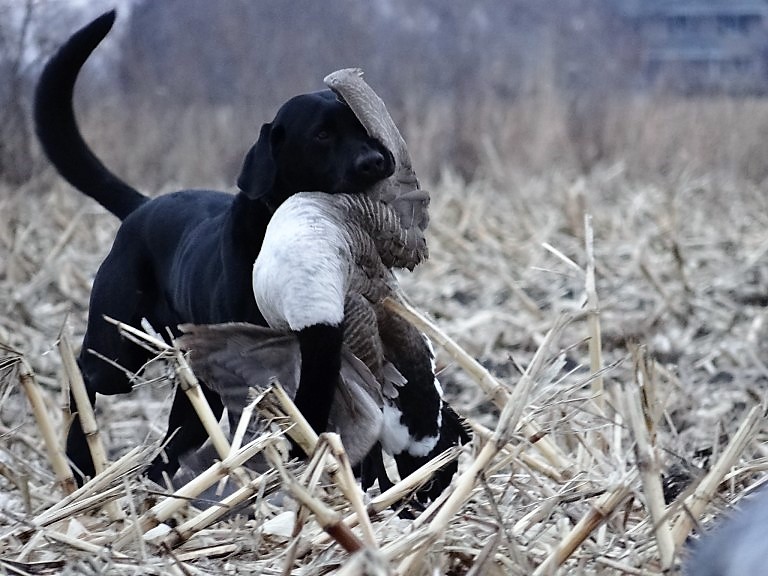
A black lab, Buddy, retrieves a Canada goose during a Nebraska dark goose hunting season on a farm in western Douglas County, NE. Photo by Greg Wagner/Nebraska Game and Parks Commission.
Hunting is the flash of iridescent reds, golds and bronzes, when a rooster pheasant is spotted in a wintry, snow-covered landscape in rural Nebraska.

Rooster pheasant moving across winter snow cover in Burt County, NE. Photo by Greg Wagner/Nebraska Game and Parks Commission
But, the importance of hunting far exceeds those scenarios.
Let’s dig deeper, much deeper.
Consider these statements.
Hunting, for those of us who choose to participate in this lifestyle, is deeply entrenched in our history. Hunting helps nature and earth in different ways. Hunting offers an understanding and appreciation of wildlife and the ecosystems in which it lives like no other outdoor activity. Hunting affords the exploration of wild places. And, the hunting lifestyle provides delicious, nutritious protein for a meal in a time period where much of our food is processed or modified.
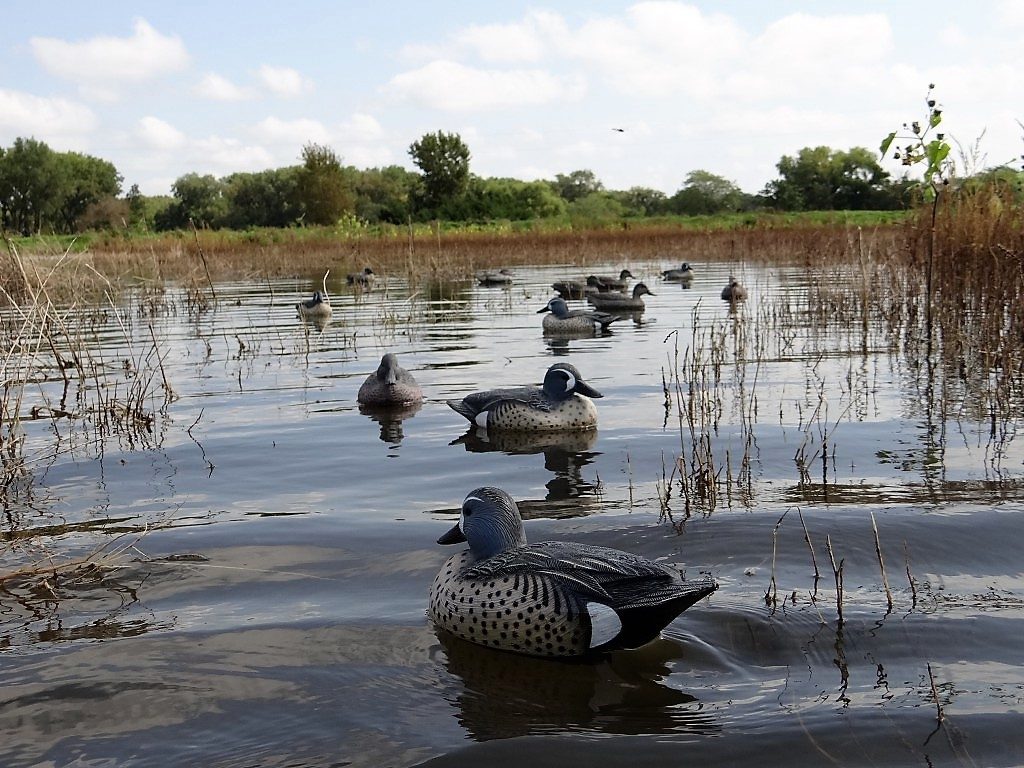
Teal duck decoys float on a Saunders County wetland during Nebraska’s early teal duck hunting season. Photo by Greg Wagner/Nebraska Game and Parks Commission.
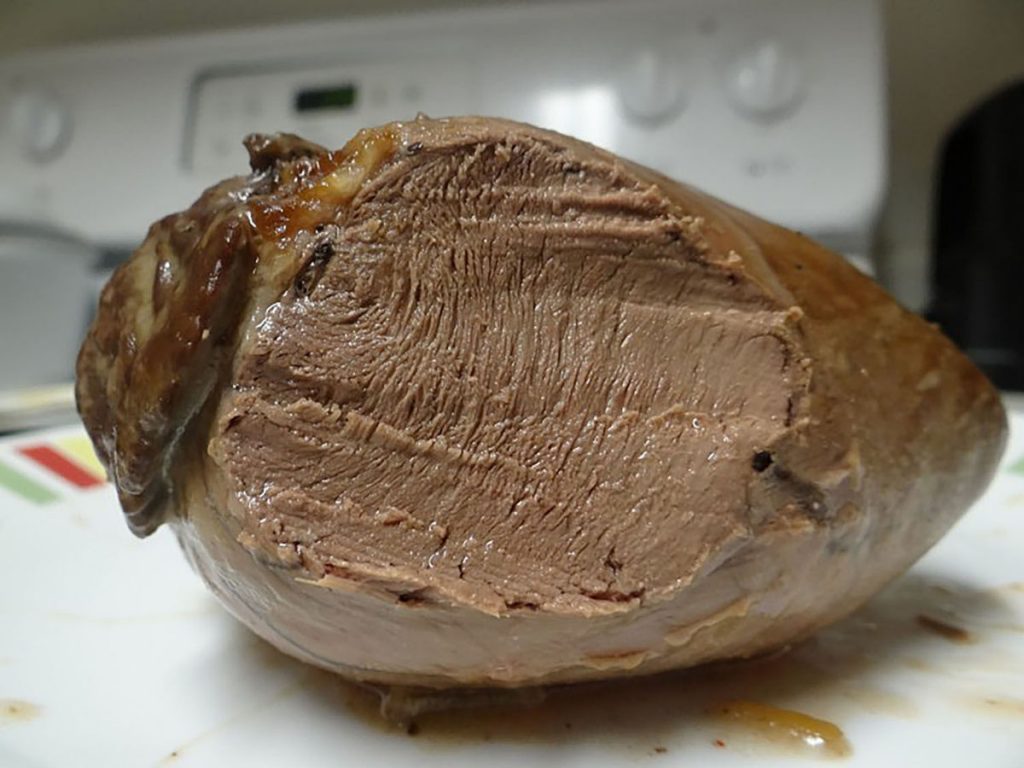
Succulent, lean, roasted wild venison (deer) heart. Photo by Greg Wagner/Nebraska Game and Parks Commission.
Hunting also boosts our economy. Hunting provides funding for conservation and wildlife management. Hunting promotes a healthier lifestyle. Hunting strengthens interpersonal relationships, especially with youth.
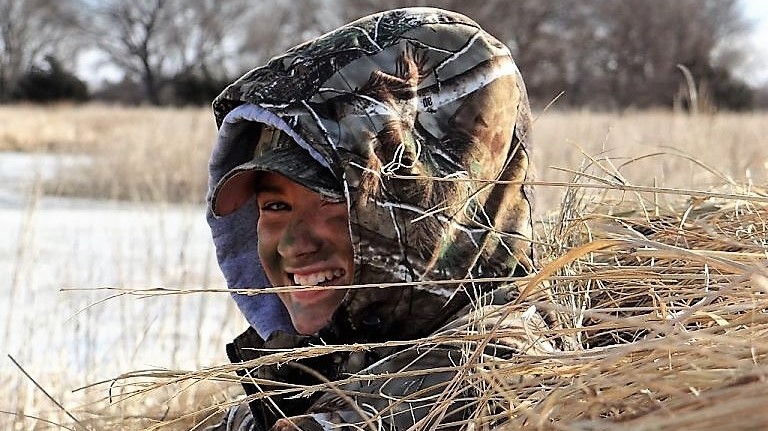
A young hunter enjoys her first-ever Canada goose hunt along the Platte River not far from Schuyler, NE during a past season. Photo by Greg Wagner/Nebraska Game and Parks Commission.
Hunting makes for lasting memories.
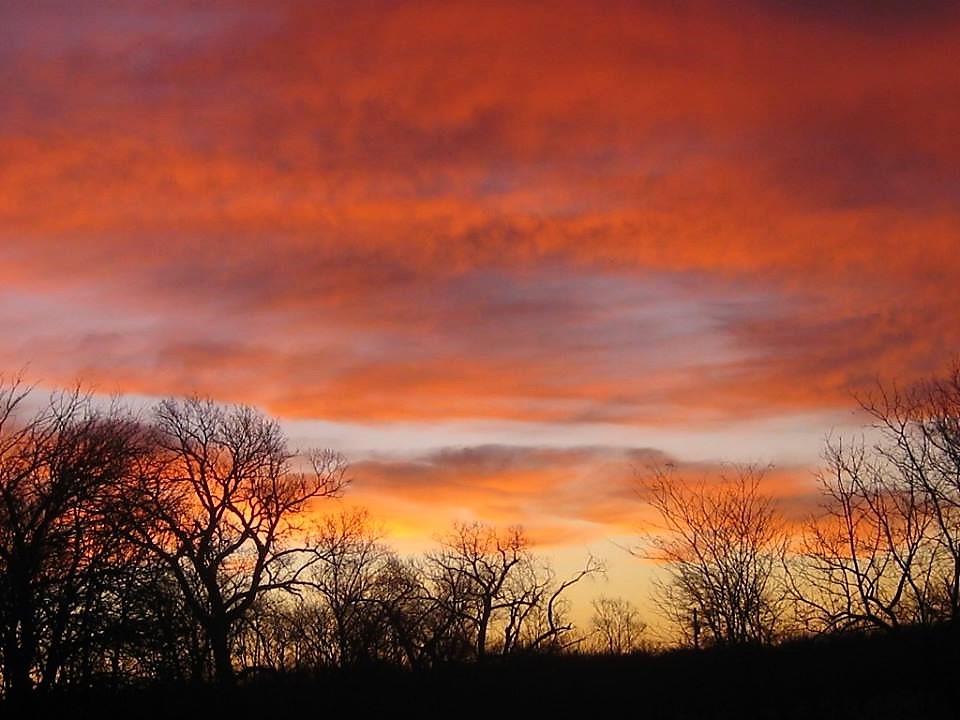
The hues of a sunset on a farm in Sarpy County during Nebraska’s firearm deer hunting season in November. Photo by Greg Wagner/Nebraska Game and Parks Commission.
Hunting has a charitable characteristic.
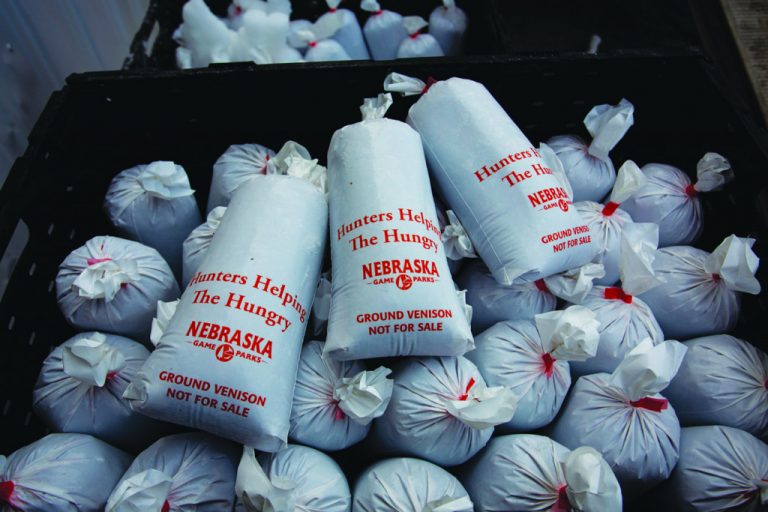
Here are packages of ground venison (deer meat) in the Hunters Helping the Hungry program that were processed by a participating meat locker and are now ready for distribution to a local food pantry. Photo courtesy of NEBRASKAland Magazine/Nebraska Game and Parks Commission.
Hunting bonds us with the land and water.

Kyle Simpson of Elkhorn, NE and his dog Cowboy prepare to enter the teal duck hunting blind in rural Saunders County, NE. Photo by Greg Wagner/Nebraska Game and Parks Commission.
Hunting directly connects us to the cycle of life and death on our planet and the management of wildlife.

This large white-tailed deer doe was harvested along the Platte River in an early October firearm antlerless-only deer hunting season evening session by yours truly in western Douglas County, NE. The landowner, who had crop damage, requested that adult white-tailed does be legally taken off their farm to thin the deer herd to a more manageable level. Photo by Rich Berggren/Nebraska Game and Parks Commission.
Hunting is ‘citizen science’ at work.
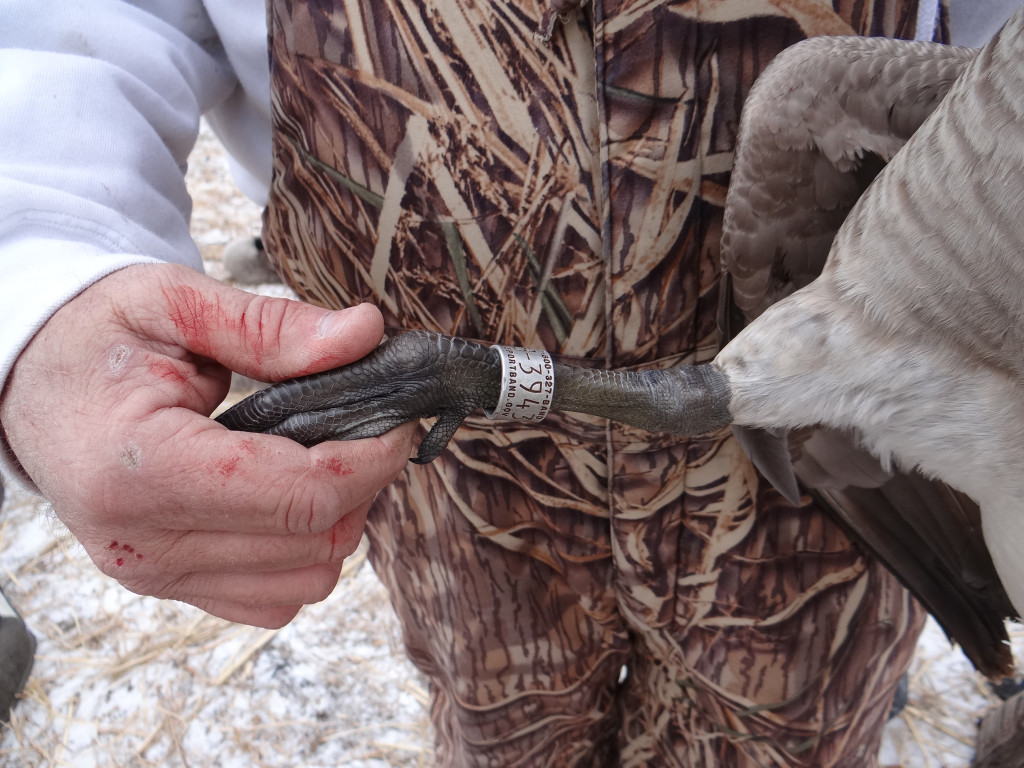
A waterfowl hunter exams a leg band on a harvested Canada goose in western Douglas County, NE before reporting information about it to a phone number listed on the band. Photo by Greg Wagner/Nebraska Game and Parks Commission.
Breaking it down even more, here are a dozen reasons why hunting is so important, particularly in Nebraska!
- Hunting manages wildlife populations. Hunting is a vital wildlife management tool. It keeps nature at a healthy balance of which the available habitat can support (carrying capacity). For many wildlife species, hunting also helps to maintain populations at levels compatible with human activity and land use. Wildlife is a renewable natural resource with a surplus and hunters harvest that surplus! This harvestable surplus is never exhausted. Hunting serves as an integral part of preserving native biodiversity and has a legitimate place in modern society. Hunting keeps the Wild wild.
- Hunting is natural and humane. Nothing could be more natural than hunting, and indeed just about every animal species—including humans—has been either predator or prey at some point in its evolution. Death is unavoidable in nature. Hunting is a ritual that lets a person participate in the food web, the life and death cycles on which all natural systems depend. And, with regard to Mother Nature, she can be extremely cruel if the truth is known! Free ranging wildlife species potentially face horrible scenarios that can lead to death or severe disability such as overcrowding, starvation, disease, extreme weather episodes, violent territorial battles and vicious attacks by predators. A hunter’s well-placed shot with a legal firearm or bow ensures a much quicker means to an end than what Mother Nature has in store!
- Hunting benefits all wildlife. Scientifically-based and regulated hunting has never led to threatened or endangered wildlife populations, ever! In fact, hunting funds, specifically dollars generated from application fees/hunting permit/stamp sales, have helped many game and non-game species recover from dwindling numbers through public lands acquisition, habitat improvement and maintenance, research, public information/education, and wildlife law enforcement work. As an example, in 1907, only 41,000 elk remained in North America. Thanks to the money and hard work invested by hunters to restore and conserve habitat, currently there are more than 1 million elk! Herds of elk once common across all of Nebraska became extinct by 1900. In the 1960s a few elk came to Nebraska, and in 1986 the state had its first modern elk hunting season. Since then, elk and have expanded into hills and rivers of western Nebraska, and the annual passage of young bulls through eastern Nebraska is a common occurrence. Hundreds of elk have been harvested since the first season in 1986. The return of elk to Nebraska is due to the tolerance of landowners and the work of biologists (subsidized by hunters), but also to the endeavors of hunters themselves and hunting organizations such as the Rocky Mountain Elk Foundation. The bottom line: Hunters pay more for overall wildlife conservation than any other user or advocacy group.
- Hunting is part of our rich heritage. We are all descendants of hunters. The rich and varied hunting heritage of Nebraska dates back to the old stories and diaries of grandfathers, settlers, frontiersmen, mountain men, and early explorers. It goes further back to the Native American tribes – the Omaha, Lakota, and Pawnee — who followed the bison as the seasons turned. It goes even further back to prehistoric people who, according to archaeological evidence, were the first hunters in Nebraska who killed big game animals for food beyond 10,000 years ago. Consider what Amherst College Professor, Jan Dizard, says about the hunting heritage: “Our capacity to create cultures with rituals, norms, and ethical restraints makes us distinct from the other creatures with whom we share the planet, but to deny that part of us that is wild is to deny what it is to be fully human.”
- Hunting controls conflicts between humans and wildlife. Whether it’s a farmer who is experiencing crop damage done by white-tailed deer or an area of large rural acreage dwellers undergoing problems associated with wild turkeys, hunting serves to control game populations within landowner/homeowner tolerance levels. Animals can become habituated to humans, resulting in an increase in property damage and sometimes harmful encounters. For instance, hunting does limit deer browse in agricultural areas, but helps to curb deer-motor vehicle collisions as well. Hunting may assist your vegetable or flower garden from getting entirely eaten by deer, too.
- Hunting has dedicated participants. Hunters play a critical role by providing key survey information from the field that wildlife managers and biologists need to determine the health of ecosystems. For conservation agencies and universities, hunters count wildlife, fill out questionnaires, stop at big game check stations, report bands and give details and even biological samples from harvested game animals and birds.
- Hunting helps feed the hungry, homeless and others. In the past ten years in Nebraska, deer hunters have voluntarily donated tens of thousands of pounds of lean, tasty venison to help feed those in need through the Nebraska Game and Parks Commission’s Hunters Helping the Hungry program. Laws are in place for an individual hunter to donate his or her legally taken game to another person wanting it with proper documentation such as through the Nebraska Game and Parks Commission’s Deer Exchange program online.
- Hunting provides a unique opportunity to harvest and consume locally grown, free-ranging meat and has positive climate effects. Hunting teaches resourcefulness and how to be more self-sufficient in today’s society. Hunting fits ideally into the locavore food movement affording an alternative that lets people have local, free-range, lean, wholesome meat for their families. Wild game meat is really as pure as it gets: No growth stimulants (hormones), no feed additives, no fences, no dyes, and no Styrofoam and cellophane under the fluorescent lights of the supermarket. Research shows there are positive climate effects of harvesting wild game. Managing populations of game at sustainable levels by means of legal hunting will help improve the quality of habitat and allow important forage plants to better endure any drought stresses or weather extremes exacerbated by climate change. Essentially, wildlife populations and habitats that are healthy are going to be in the best possible position to deal with climate change.
- Hunting offers a kinship with wildlife and wild places, combats the nature deficit disorder and is good for all-around wellness. Hunting offers fitness, fresh air, Vitamin D and an awakening of the senses for the body and mind as well as an undeviating connection to wildlife and wild places. Amidst the COVID-19 pandemic, hunting has been a respite to combat the rising tide of depression and anxiety and put healthy food on the table. Hunting isn’t solely about killing an animal though. In fact, studies show that safe hunting under the guidance and training of mentors actually produces a holistic experience that creates less violence in young people. Hunting allows us humans to go afield to get re-acquainted with the sights and sounds of nature and get off the grid to escape technology and the hustle, bustle and strife of everyday life. Survey after survey shows that the top reason individuals hunt is to be with nature at a wild place. As affirmed by Randall Eaton in Why We Hunt, “Hunting is how we fall in love with nature. The basic instinct links up with the spiritual, and the result is that we become married to nature.” This marriage remains the bedrock of the conservation ethic and it drives a bond with wildlife which simply cannot be replaced. In today’s world where parents and children are often going in two different directions and have little time together, hunting is also something that can be done in a one-to-one, uninterrupted, beautiful environment making for interesting experiences, wonderful conversations and the exchange of fun stories. Additionally, hunting is also about creating indelible images and experiences at natural areas in rural settings. Base camp, early fall mornings, the smell of decaying leaves, sunrise on the duck marsh, sunset in the deer woods, trekking through freshly fallen snow, and those three prairie grouse you missed, HA!— all comprise the roots of a hunt at a special, natural place to never be forgotten.
- Hunting contributes greatly to the economy. Hunting is good for the economy! Hunters not only purchase hunting gear, trucks, ATVs, UTVs and boats; they also fill their gas tanks and coolers. They stay at motels, hotels and resorts. They eat at cafes, restaurants and pubs. They buy groceries, hunting clothes and fun souvenirs. They financially bolster communities, large and small. Hunting-related activities provide many jobs, support a number of businesses, and mean much to local economies and the state’s economy. In Nebraska, well over 289,000 hunters and anglers typically spend more than $780 million dollars annually in their outdoor pursuits and support nearly 12,000 jobs.
- Hunting is safer than other sports. Statistically, hunting is one of the safer forms of recreation. According to hard data collected by the National Shooting Sports Foundation, hunting with a gun is the third-safest sport when compared to 28 other popular sports, and has a lower injury rate than golf, volleyball, baseball, wrestling and tackle football. This, most likely, is due in large part to the requirements for successful completion of certified firearm and bowhunter education courses by younger hunters. These courses are funded entirely by hunters through a Federal excise tax on firearms, ammunition and archery equipment.
- Hunting is not wild, uncontrolled savagery. Historically, hunters have formulated their own limits. The North American Wildlife Conservation Model is the only one of its kind in the world and was developed by hunters and anglers in the mid 1800’s. These hunters realized that limits needed to be set in order to protect rapidly disappearing wildlife, and assume responsibility for managing wild habitats. Hunters are governed by specific laws, regulations and orders today in their respective pursuits of game animals and birds. Information about hunting in Nebraska can be obtained at www.OutdoorNebraska.gov
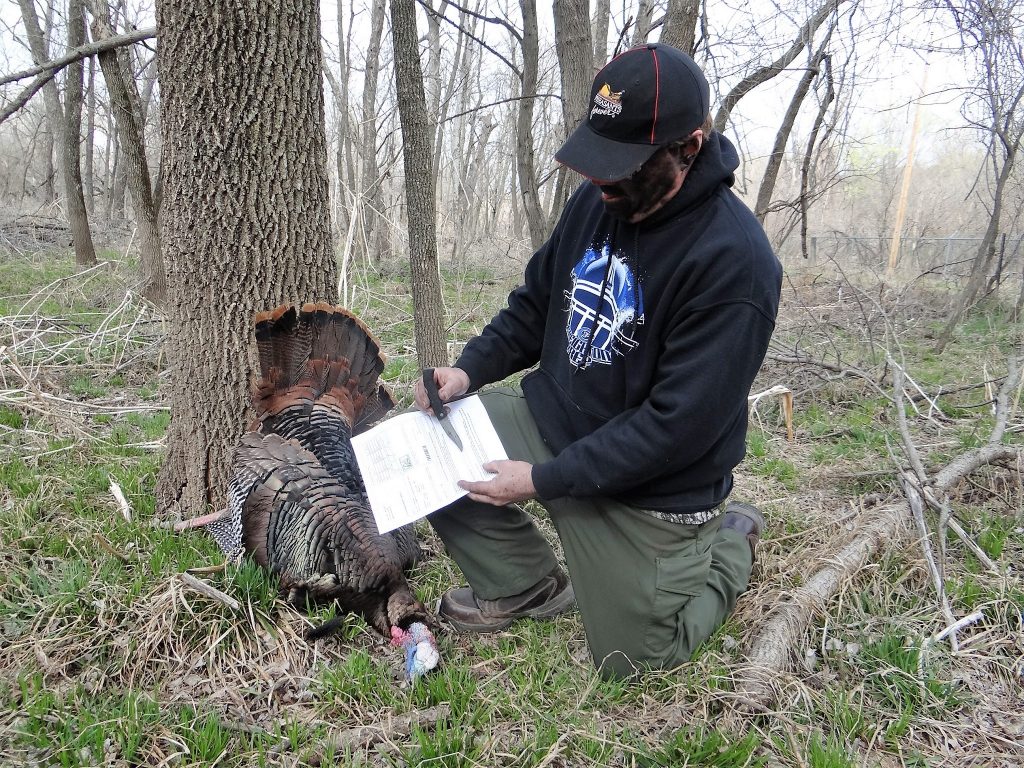
Your blogger providing required information on an adult male wild turkey immediately after the harvest on his spring wild turkey hunting permit in Washington County, NE. Photo courtesy of Greg Wagner/Nebraska Game and Parks Commission.
The post Why Hunting Is So Important appeared first on Nebraskaland Magazine.





Comments